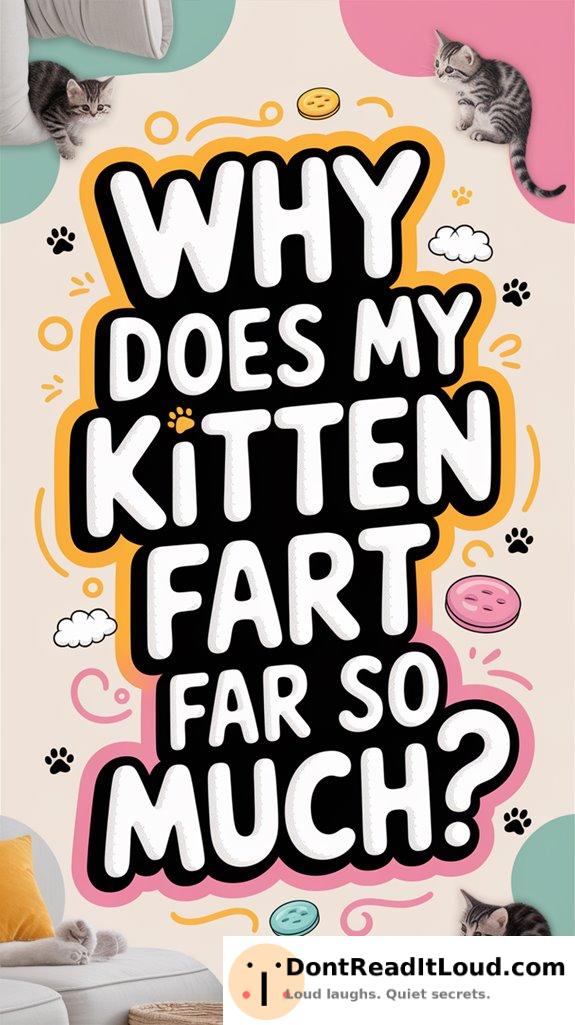
Kittens often have gas because their digestive systems are still developing or they react to certain foods. They may also gulp food too quickly, eat low-quality diets, or have intestinal parasites. Switching to food made for kittens and using slow-feed bowls can reduce gas. If your kitten also has diarrhea or a bloated belly, see your vet. Learn more about keeping your kitten’s digestion healthy.

Although kittens are undeniably cute, many owners are surprised by how gassy they can be. One main reason is their still-maturing digestive system. As kittens transition from milk or formula to solid food, their digestive tracts aren’t yet fully developed, which often leads to increased gas. During this period, their gut is establishing a healthy balance of bacteria for proper digestion, so some gas is normal until their system adjusts.
Food sensitivities also play a role. Kittens may react to certain proteins, grains, or dairy. Even if they previously tolerated a food, new sensitivities can develop. For example, many kittens can’t digest lactose, so cow’s milk often causes excess gas. It’s best to feed them kitten-specific food designed for their needs, as it’s gentler on their stomachs than adult cat food. To avoid stomach upset, gradually transition between foods over 7–10 days, even if you’re switching within the same brand.
What you feed your kitten matters, too. High-carb foods, especially those with legumes, can increase gas production. Certain fibers in dry food may also contribute to flatulence. Choose high-quality kitten food with balanced nutrients to support digestion and growth. Poor ingredients or spoiled food can upset their stomachs, causing gas and other health problems. Avoid giving them table scraps or human food, which can be tough for kittens to process.
Eating habits also make a difference. Kittens who eat quickly often swallow extra air, leading to more gas. This is common in litters where competition at mealtime is high. Using slow-feed bowls and serving smaller, more frequent meals can help reduce swallowed air. Veterinarians often recommend strategies like these to manage gas issues effectively.
Finally, be aware that intestinal parasites are common in kittens and can cause gas, diarrhea, or vomiting. Parasites like roundworms or Giardia can be picked up from their environment or their mother. Look for symptoms such as greasy stools or a swollen belly, and consult your vet if you notice these signs. An accurate diagnosis from a veterinarian is essential for effective treatment, especially if the gas is accompanied by other symptoms.
Conclusion
To sum up, frequent farting in kittens is usually nothing to worry about and often relates to diet or fast digestion. Watch what your kitten eats and choose quality kitten food. If you see symptoms like diarrhea or vomiting, contact your vet. Monitoring their diet and health helps keep your kitten comfortable and happy. Try not to worry too much—this is a common part of raising a kitten.



